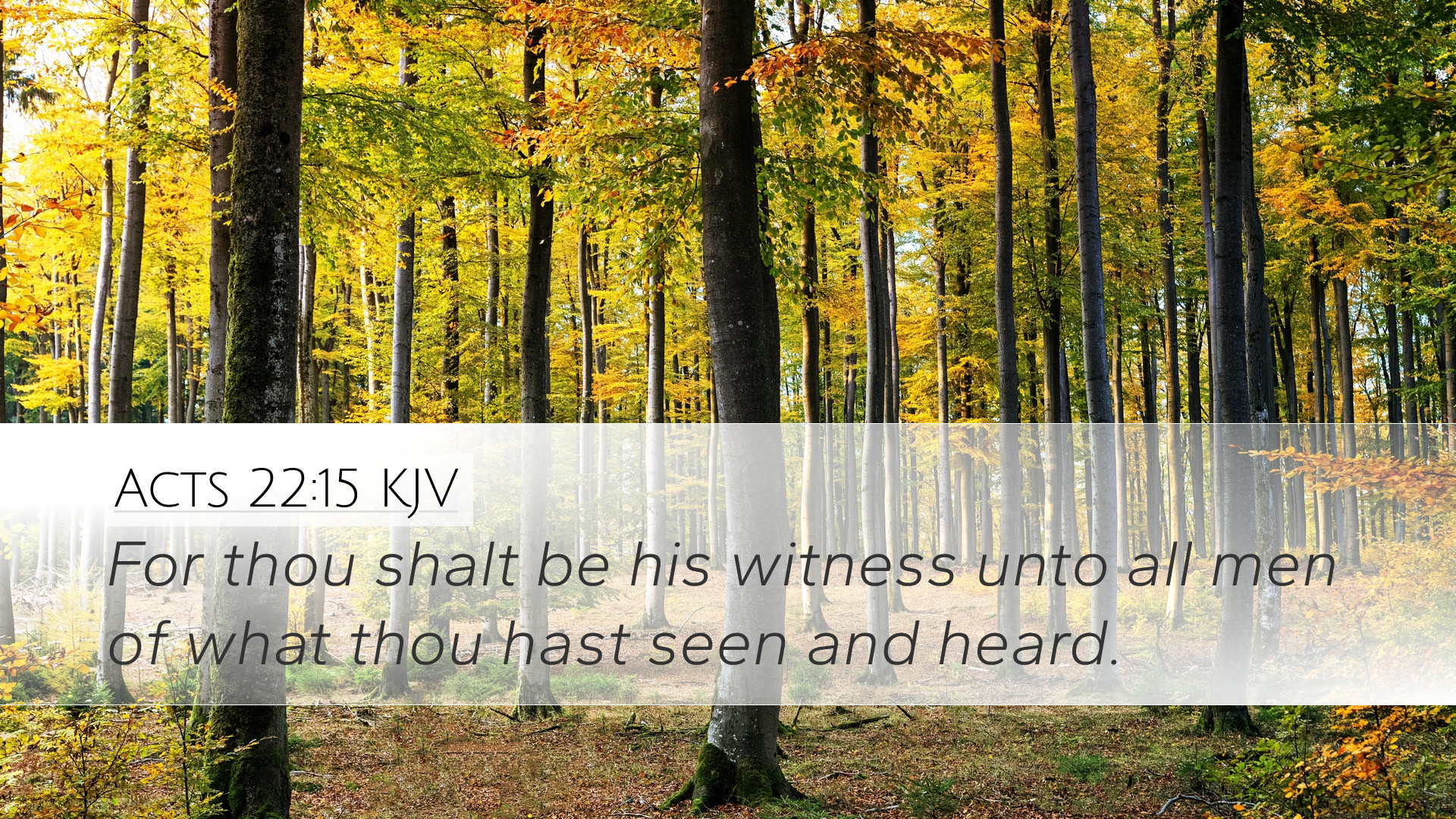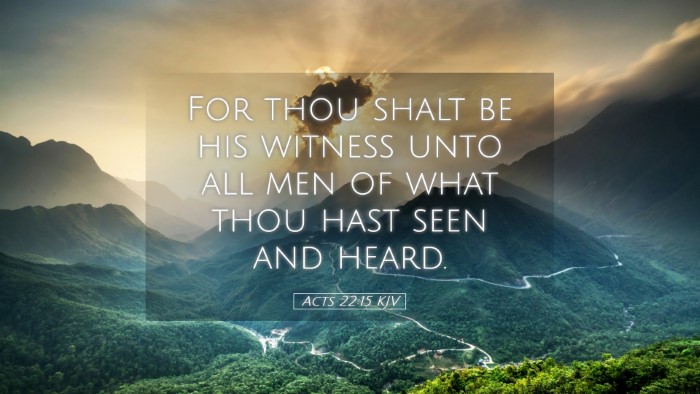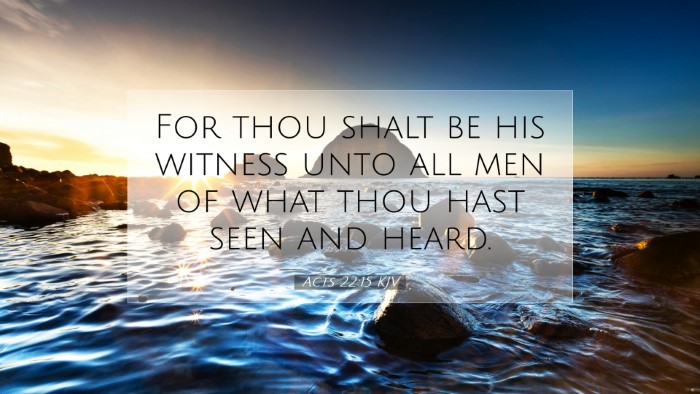Commentary on Acts 22:15
Verse: "For thou shalt be his witness unto all men of what thou hast seen and heard."
Introduction
This verse serves as a pivotal proclamation in the life of the Apostle Paul, illustrating his divine commission and setting the stage for his ministry to both Jews and Gentiles. In this commentary, we will analyze and synthesize insights from several notable public domain commentaries, providing depth and perspective for pastors, students, and theologians alike.
The Context of Acts 22:15
This verse is part of Paul's recounting of his conversion experience and subsequent calling before an attentive audience of Jews in Jerusalem. The context reveals significant details regarding God's sovereignty and the transformative power of a personal encounter with Christ. As Paul shares his testimony, the emphasis is placed on witnessing and the responsibilities that come with such a divine appointment.
- Divine Encounter: Paul details the moment of his conversion (Acts 9) when he encountered Christ on the road to Damascus.
- Call to Witness: The phrase "thou shalt be his witness" signifies a shift from persecutor to proclaimer of the Gospel.
- Universal Mission: The call extends to "all men," encompassing both Jews and Gentiles, illustrating the universal nature of the Gospel message.
Theological Themes
Acts 22:15 is rich with theological implications that resonate throughout the New Testament. The commentaries highlight several key themes:
-
Witnessing:
Henry emphasizes the necessity of bearing witness, stating that all Christians are called to share their experiences of God's grace. The act of witnessing is not merely recounting events, but also sharing the implications of those events for others.
-
Transformation:
Barnes reflects on the transformative power of an encounter with Christ, highlighting how Paul's previous life of persecution was radically changed into one of fervent evangelism.
-
Obedience to God’s Call:
Clarke notes that the call to witness involves a commitment to obey God's command, indicating that witnessing is both a privilege and a responsibility bestowed upon believers.
Insights from Commentators
Here we distill insights from key commentators regarding Acts 22:15:
Matthew Henry
Matthew Henry underscores the personal nature of the call. He notes that Paul’s witnessing stems from a direct encounter with Christ, which emphasizes the importance of personal testimony in evangelism. For Henry, each believer's story of salvation is a tool for convincing others of the truth of the Gospel.
Albert Barnes
Barnes provides a detailed exegesis on the word "witness," indicating that it implies a thorough declaration of what one has seen and heard. He makes a practical application for readers today, encouraging believers to be authentic and articulate in sharing their faith experiences. He also connects the act of witnessing with the empowerment of the Holy Spirit, which was evident in Paul’s ministry.
Adam Clarke
Clarke places the emphasis on the scope of Paul’s mission, detailing how "all men" signify the inclusivity of the earliest Christian message. Clarke also alludes to the challenges Paul would face in fulfilling this mission, emphasizing the need for reliance on God's strength and grace. His commentary encourages readers to view their personal missions as vital to the expansion of the Kingdom of God.
Application for Today
The insights from this verse extend well into contemporary ministry:
-
Empowerment through Testimony:
Churches can encourage congregants to share their testimonies, recognizing that personal stories can have a powerful impact on non-believers.
-
The Inclusive Nature of the Gospel:
Ministry efforts should reflect the universality of the Gospel, transcending cultural, ethnic, and social barriers.
-
Training and Preparation:
Pastorial leadership ought to provide training for members on how to share their faith effectively, paralleling Paul’s initial training in the early church.
Conclusion
Acts 22:15 encapsulates a significant moment in Paul’s life that resonates with believers today. Ensuing his transformative encounter with Christ, Paul's divine commission to be a witness for all mankind sets a precedent for all Christians. As witnessed through the commentaries of Matthew Henry, Albert Barnes, and Adam Clarke, the essence of this verse lies in its call to authenticity, empowerment, and the expansive reach of the Gospel. In embracing our roles as witnesses, we participate in a mission that continues to unfold across generations.


